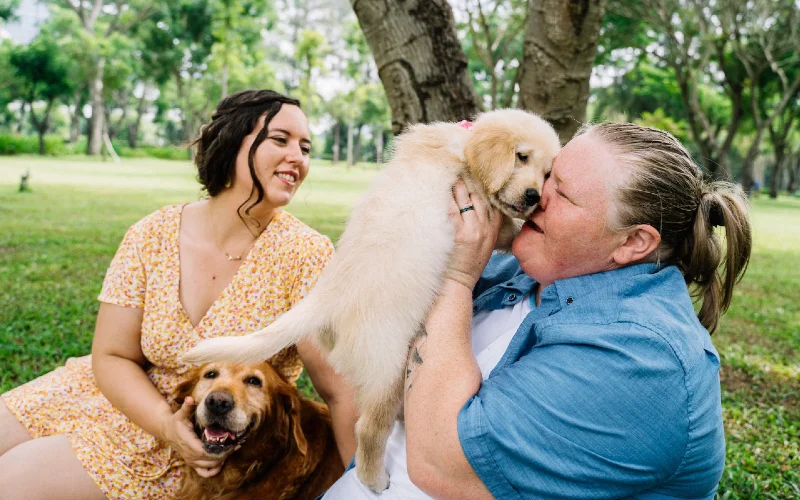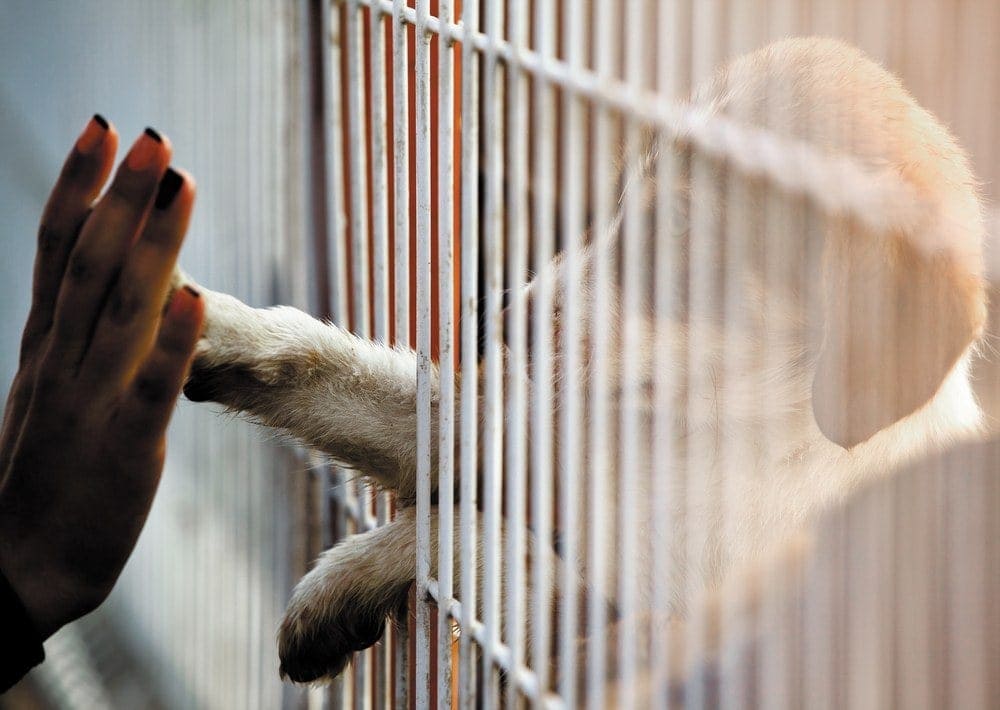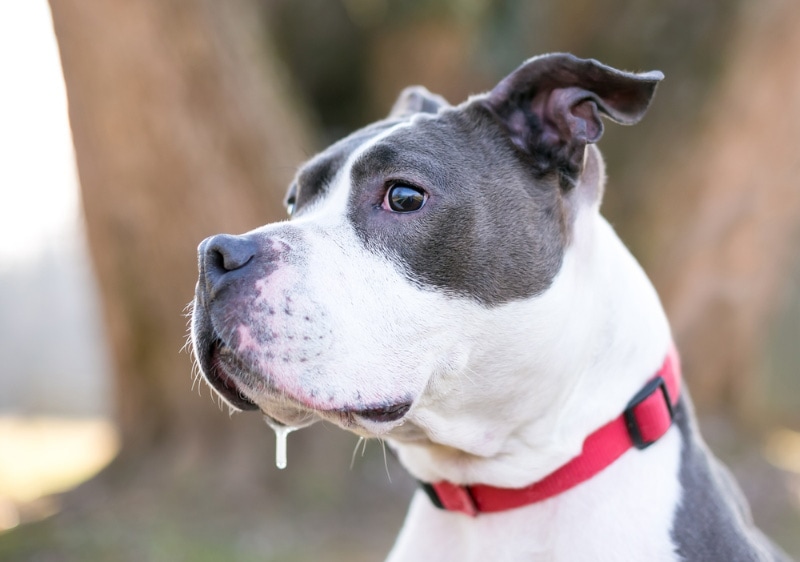Dog Custody: State Laws, Agreements & Everything You Should Know

Updated on

Our dogs are like family to us—but what do you do when your family is falling apart? If you’re going through a divorce, you and your spouse have to figure out how to split up everything you own, including your pets. You might be worried about getting your dog away from an abusive or neglectful partner. Or maybe you and your partner are both great pet owners, and you’re wondering if sharing ownership is an option. No matter what your situation, it’s important to look at your own state’s laws.
This article has an overview of the most common options when it comes to pets in divorces. It also has a list of states with “pet protection laws” that guide divorce courts.
The Best Way to Determine Pet Custody
Like anything else in a divorce, pet ownership will go much more smoothly if you can work out an agreement on your own. In general, courts will honor any agreements that you and your spouse make in the separation. That means that if you can decide together—whether it is to let one person keep ownership or to work out a shared schedule—you won’t have to fight it out in court. But if you can’t come to an agreement, your state’s divorce laws can help you know how to approach ownership of your pet.

Pet Custody Approaches
There are many ways that custody agreements can take shape. In the traditional approach, dogs and other pets are treated as property, not a person. More recently, some states have begun treating pets as individuals who are allocated according to their best interest. Here are some of the ways that this can shake out:
You’re the Sole Owner
If you brought your dog into the relationship, you have proof that you bought it on your own, or you’re the only contact for vets, microchipping, etc., you might have a claim that the dog belongs to you and not your spouse. In most situations, this means you can keep the dog without your spouse having any claim to it.
Ownership is Decided With Other Joint Property
In most marriages, some of the property is considered joint or shared between spouses. If your dog is treated as joint property, you’ll need to decide ownership with your spouse when you divide up other joint property. This can get complicated, but often, pet ownership is part of the negotiations. For example, you might decide that one person keeps the dog while the other gets the car. If you have more than one pet, you might decide to split them up.
The Dog’s Best Interest Is Chosen
Ideally, any agreement will leave your pet happy and healthy. But in some states, new laws state that the best interest of the pets should be the deciding factor in custody, not property law. This means that factors like a history of domestic or animal abuse, who took care of your dog, or who is better able to meet your pet’s needs will be considered.
In states without specific animal care laws, judges can still choose to consider the dog’s best interest. If you have evidence that your spouse is abusive or neglectful of your dog, you can still try to use that evidence to get ownership.
Sharing custody of a dog might sound odd, but it isn’t unheard of. If you and your spouse both consider yourselves to be “pet parents”, you might decide to alternate caring for your dog. Most of the time, joint custody of a dog will need to be decided on voluntarily—it’s not the standard. But even if you’re in a state where pets are considered property, you (or your lawyer) should be able to create a written agreement deciding how your dog’s time and expenses will be divided.

States With Pet Custody Laws
Alaska
“…if an animal is owned taking into consideration the well-being of the animal.” (HB 147)
Alaska was the first state to pass a law considering animal custody in divorce back in 2017. It’s also one of the most thorough laws, laying out a range of ways that animals should be protected during a divorce. It has language to help abuse victims protect their animals from abusers, asks judges to consider joint and sole custody arrangements, and gives many considerations to help judges decide what’s best in a divorce. Alaska animal law specifically protects vertebrates excluding fish.
California
“…the court, at the request of a party to proceedings for dissolution of marriage or for legal separation of the parties, may assign sole or joint ownership of a pet animal taking into consideration the care of the pet animal.” (AB 2274)
In California, animal care is a determining factor in deciding ownership, and sole and joint custody are both explicit options. California also has a provision for “emergency custody”—the judge might decide on a temporary care agreement while the divorce proceeds. Like New York, this law only applies to pets, not livestock.
Illinois
“If the court finds that a companion animal of the parties is a marital asset, it shall allocate the sole or joint ownership of and responsibility for a companion animal of the parties. In issuing an order under this subsection, the court shall consider the companion animal’s well-being.” (750 ILCS)
In Illinois, the first step is determining whether a pet is a shared or marital asset. If it is, responsibility for the pet should be determined by the animal’s well-being. The law also includes an exemption for service animals.

New Hampshire
“Tangible property shall include animals. In such cases, the property settlement shall address the care and ownership of the parties’ animals, taking into consideration the animal’s well-being.” (RSA 458-16-a)
In New Hampshire, pets are still part of the property settlement, but the well-being of the pet is a factor in deciding ownership.
New York
“…The possession of a companion animal, the court shall consider the best interest of such animal.” (AB A5775)
New York state law calls for courts to determine the best interests of pets, including dogs. The bill specifies that it applies to companion animals—so working animals and farm animals are exempt.
Last Thoughts
Your dog may seem like family to you—but in the eyes of the law, it’s a little more complicated. These basics can help you get an idea of what options exist, but if keeping your pet is important to you, it’s important to get legal counsel that will help you know the best way to approach it in your state.
Featured Image Credit: Lopolo, Shutterstock











